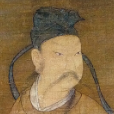-
Content count
2,524 -
Joined
-
Last visited
-
Days Won
18
Everything posted by Lost in Translation
-
And this is all the Constitution has to say about the three branches of government. Article 4 addresses states' rights, article 5 addresses the amendment process, and articles 6 and 7 address the legality of the Constitution itself. After that we have the text of the amendments. The constitution is a pretty small document. We can (and will) cover the entire document with ease. I hope you are enjoying this. I am!
-
Article 3, section 3 https://www.law.cornell.edu/constitution/articleiii#section3 Some of the term here are a bit archaic. Attainder: extinction of the civil rights and capacities of a person upon sentence of death or outlawry usually after a conviction of treason Corruption of Blood: the effect of an attainder which bars a person from inheriting, retaining, or transmitting any estate, rank, or title So the portion that states "The Congress shall have power to declare the punishment of treason, but no attainder of treason shall work corruption of blood, or forfeiture except during the life of the person attainted" means that a person's land can be temporarily seized when convicted of treason but that the land does not become property of the US, but rather follows the normal rules of inheritance. If I had to guess this was to ensure that corrupt officials could not use charges of treason to steal their opponents' wealth.
-

I Ching and the dynamics of complex systems
Lost in Translation replied to wandelaar's topic in Yijing
The I Ching is inherently subjective. It takes a person to frame the session by asking a question, calculating a response and interpreting the response. Of course the subject plays a role in this - and a large role at that. This makes objectivity difficult at best. -
Article 3, section 2 https://www.law.cornell.edu/constitution/articleiii#section2 Article 3, section 2 describes the function and jurisdiction of the courts. (bold is mine) Original jurisdiction means that the Supreme Court hears the case first, so any case involving foreign ambassadors, dignitaries, etc and all case involving one or more state are taken to the Supreme Court first. Appellate jurisdiction simply means second opinion or review, so a case can originate in a lower court and wind its way up to the Supreme Court via the appellate process.
-
Article 3, section 1 https://www.law.cornell.edu/constitution/articleiii#section1 Article 3 concerns the courts of the United States. Put simply the Constitution mandates there be one Superior Court and allows Congress the capacity to establish whatever lower courts it deems necessary.
-
This is why I encourage everyone to read the US Constitution, and this is why I started this thread. There is so much ignorance and misinformation out there. It's important to combat ignorance with wisdom, and misinformation with truth.
-
It's democratic in that the Congress holds elections and each vote counts the same.
-
The modern Democratic Party is no longer a liberal party; it is a leftist party. It does not care about the Constitution and wants to ignore it. It wants the people to regard the founding fathers as old, rich, slave-owning, white men and to dismiss them as unworthy of respect, and by extension to dismiss their ideas as unworthy of respect.
-
Article 2, Section 4 https://www.law.cornell.edu/constitution/articleii#section4 This is it for the powers of the President. Article 3 describes the Judiciary. We'll get to that in a day or two. As before, feel free to comment on anything you read here.
-
Article 2, section 3 https://www.law.cornell.edu/constitution/articleii#section3 The president is required to brief Congress on the state of the union and to give Congress other advise as he feels necessary. If the $%*# hits the fan he can convene congress or adjourn them (if they are already adjourning but can't agree on the exact time). He can receive foreign dignitaries (party time!) and is responsible for executing the laws of the country. He also shall commission all officers of the US - military and civilian. All executive authority, be it Generals, Colonels, Admirals, Captains, of the lowest Private flows from the President. Cool, huh?
-
Article 2, section 2 https://www.law.cornell.edu/constitution/articleii#section2 The basic powers of the President: Commander in Chief of armed forces: Make treaties with foreign nations; Appoint officers and judges of the Unites States; Appoint Senators that vacate their terms during recess of the Senate.
-
Article 2, section 1 https://www.law.cornell.edu/constitution/articleii#section1 Note: The 12th and 25th Amendments have changed some of the items above (in italic). This is, of course, the text as originally written. I would like to point out the following: Notice that the Constitution explicitly states that the President shall be chosen by electors from each state, and lists how each state shall determine the number of electors. The Constitution also states that each elector shall cast their vote on the same day. No where in the Constitution does it say that the President shall be decided by popular vote. This is important to understand. The framers of the US were creating a democratic republic, not a pure democracy. If you want to watch a short video about the electoral college then see the spoiler below.
-
This is good to remember. In all ways a person is responsible for himself. There are others who will help you, but help is not the same as doing it for you. People used to be taught this when they were young. Now it seems the opposite is being taught. It does not bode well for future generations. I hope the pendulum is swinging back the other way.
-
Very good question. I don't know the answer to this.
-

I Ching and the dynamics of complex systems
Lost in Translation replied to wandelaar's topic in Yijing
Understood. What I am saying is that the I Ching does not contain text. Text has been added to the I Ching over the years by various scholars. But the I Ching is just a bunch of lines, their meanings, and a method to calculate the lines. -

I Ching and the dynamics of complex systems
Lost in Translation replied to wandelaar's topic in Yijing
We can and should look at hexagrams, trigrams, image, text, judgements, and commentaries. They are all related. But keep in mind the I Ching is fundamentally about the lines and their relationships. It's complex (pun intended!). -

I Ching and the dynamics of complex systems
Lost in Translation replied to wandelaar's topic in Yijing
Understood, but keep in mind that the text cannot be separated from the hexagram (and trigram) attributes, since it's those attributes that drove the text originally. After all, King Wen and Confucius wrote the text upon consulting the attributes. -

I Ching and the dynamics of complex systems
Lost in Translation replied to wandelaar's topic in Yijing
That is true if you look at the transition as a whole. If you look at the hexagram components then there are many more interpretations. For example, hex 27 ䷚ I / Nourishment consists of "Keeping Still" over "Arousing". The attributes of keeping still are above/outside and arousing are below/inside. Attributes of keeping still are: standstill, dog, rat, hand, third son, fingers, mountain, path, stones, doors, fruits, seeds, watchmen and eunichs, among others. Attributes of arousing are: movement, dragon, serpent, foot, first son, decisive, vehement, reed/rush, thunder, dark yellow, spread out, great road, bamboo and strong, among others. So if you look at the hexagram attributes instead of (in addition to) the I Ching judgements the then you can see a much larger picture. And if you do this with both hexagrams comprising a single reading then the number of interpretations is phenomenal! -
@dawei and all others responsible for creating and maintaining this site, THANK YOU for creating The Dao Bums! I find much pleasure here. I know how much work it is to keep something like this rolling and I really appreciate all you do. - (not as) Lost in Translation (as I used to be)
-

I Ching and the dynamics of complex systems
Lost in Translation replied to wandelaar's topic in Yijing
Is this like then the Tao Te Ching refers to "cooking a small fish" as a metaphor for ruling a nation? Thus if we see a reference to food or to nourishment we might conclude this is speaking of some form of leader/follower relationship? Is this the sort of thing you are talking about? -

I Ching and the dynamics of complex systems
Lost in Translation replied to wandelaar's topic in Yijing
I think that is exactly what the I Ching does, since it models the changes within the world as we know it. That's more difficult to determine. Whereas science strives for repeatability, the I Ching does not. One can prove science. Proving I Ching is far more difficult. -

Thank You for The Dao Bums!
Lost in Translation replied to Lost in Translation's topic in Forum and Tech Support
Bump! I'm still feeling the love, even though I've been mainly trolling the off-grid section. There must be something special about Taoists, Buddhists, Hindus, Wiccans, and others of that ilk. Despite our differences the debate here is far more civil than most of the Internet. Boo Yah! -
Work on that a little longer and then, if needed, ask again. I'll set an alarm to wait 73 days and then respond to this again. OK, I'm a few hours early since I need to go to the airport this afternoon and won't be able to post at exactly 4:15 PM. What? Exactly. Ta da! Here's a good lesson for developing the "Art of Listening": Write stuff down!
- 15 replies
-
- spirituality
- advaita
-
(and 1 more)
Tagged with:
-
20 more hours and all will be revealed.
- 15 replies
-
- 1
-

-
- spirituality
- advaita
-
(and 1 more)
Tagged with:
-

I Ching and the dynamics of complex systems
Lost in Translation replied to wandelaar's topic in Yijing
There are a finite number of transitions within the I Ching, 4096 to be exact, so all possible situations can be distilled down to one of 4096 scenarios. From that point of view the I Ching, although complicated, can hardly be considered complex, at least according to the Wikipedia definition. But there is more to the I Ching than simply the transitions. Each hexagram consists of two trigrams, and each trigram has many attributes. One can translate the relationships between the attributes in several ways, thus producing highly nuanced interpretations. These interpretations may well be considered complex.


